"the earnest expectation of the creation eagerly waits for the revealing of the sons of God." Rom.4:19
~ Human government with its rules and regulations symbolizes humanity in a toddler age [quite freaky when govt attempts to act like a parent]. When the "sons" come to age, they do not live by the letter of the law but by the spirit. Children need codes of conduct, "sons" do not. "For as many as are led by the Spirit of God, they are the sons of God." (8:...
7 Million Lights
November 19, 2019
No comments
One man's terrorist is another's freedom-fighter,It's folly to think that sticks can beat out a raging fire-They only add ire to ire.One fights for honor, the other for his rights;Darkness has covered this city of 7 million lights,On the streets, cries and sig...
Oh Paradise!
November 07, 2019
No comments
Oh paradise! The world so far
That sorrows here can't make it there;
Whence wafts of joy we oft' await
To lighten the load of daily pain.
Oh death! The door of the near
Opening up to freedom or fear.
Some fall helplessly into hell's cries.
Some are snatched away by paradi...
Self-pleasing, Man-pleasing, God-pleasing
October 19, 2019
No comments
There are these 3 orientations of the self:Towards itselfTowards othersTowards GodPeople usually have a mixture of these with one or two predominating the others.Romans 12:1-2 reminds that pleasing God can only be possible through a living sacrifice of the body and a transformation of the mind to be able to discern God's acceptable will.Galatians 1:10 challenges is to please God and not the world.Jung talked of the mass man who falls prey to the images of the collective consciousness (what the world is demanding as ideal) rather than listening...
Shaping a Scientific Sense of Self
SCIENCE
SELF
Causality (determinant factors)
Self-determination (freedom)
Essentiality (defining features)
Social disguise/identity (façade/front)
Objectivity (definite facts)
Subjective dispositions (feelings)
...
Grammar, Culture, and Transgender
October 15, 2019
No comments
Accepting an anomaly into the grammar of social-culture might introduce meaning confusions and so humans naturally resist any disturbance of the prevailing system of meaning which is crucial for any proper communication/socialization to take place. That is an important factor why in traditional Asian societies like India, the transgender had to group away into a community of their own with their own socio-cultural grammar system that was different from the others. However, with the rise of liberalism, individualism, and postmodernism, systems of...
3 Principles of the Kingdom in Mark 4-5
Principle of Invisible Action
Jesus was asleep on a pillow and it felt and looked like he didn't care, but He is in control. Like the seed sown that grows regardless of human feeling or knowledge, the work of the Kingdom is independent of human cognizance.
Sometimes, answer to prayer, miracles don't seem happening. But, what seems to be the case is only a matter of subjective perception. God knows what he is doing.
Principle of Tangible Flow of Power
The physical flow of power through CONTACT is evident in both OT and NT (Moses' rod, Elijah's...
The Spirit as Witness in the Work of Salvation
September 06, 2019
No comments
One’s lifetime is insufficient to capture in words the extent of the Spirit’s work towards the salvation of any individual. The Spirit was involved not only in the creation of the world (Gen.1:1,2; Psa.104:30) but also is involved in the creation of every human being that comes into the world (Psa.139:7,13-16). But, more importantly, it is through the Spirit that the believer is regenerated (born again) and becomes a new creation in Christ.
“According to His mercy He saved us, through the washing of regeneration and renewing of the Holy Spirit”...
Is Pentecostalism a mystical movement?
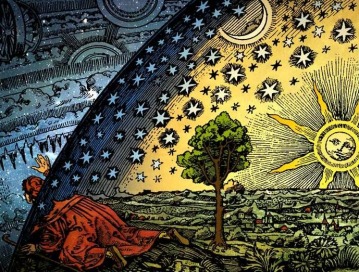
There are some who are trying to contend that Pentecostalism is a mystical movement or tradition. I disagree with this notion. Pentecostals call themselves Pentecostals since they regard their experience as the same as the experience of the apostles on the day of Pentecost. It would certainly be amiss to label the apostles and the early Christians as mystics. The Pentecostal experience of Holy Spirit is considered as the truly New Testament normal...
Some Similar Hebrew and Hindi Words
קֶרֶן • (kéren) and किरण(kiran) both mean "ray of light"
נהר (nahar) and नहर (nahar) mean "river". Nahar also means river in Arabic, Persian, and Urdu (نهر)
הֵיכַל (hekal) and هيكل (haikal) in Arabic mean temple. The word is used for temple in Hindustani literature.
מֵאִירָה (Meira) means "illuminates" and मीरा (Meera) means prosper...
Approaching Truth
Contrary to the postmodern and deconstructionist skepticism regarding the possibility of encountering truth hermeneutically (which, as has been observed, is self-skeptical as well since deconstructionists need to use the medium of language whose efficiency they doubt), Jesus said "You shall know the truth and the truth shall set you free." This might appear too simplistic an understanding of truth; nevertheless, it's undefeatable. Do the deconstructionists believe that they "know the truth and the truth has set them free"? Is it really the truth...
The Tragedy of a Lured Prophet (1 Kings 13)
1 KINGS 13 gives us the narrative of a prophet whose prophecies were accompanied by signs and wonders.
However, he was lured by another old prophet into doing what was forbidden to him. He was forbidden to eat and drink in that place. But, the old prophet said that the Lord had told him to feed him. The narrative describes the ensuing events that unraveled the error of the prophet lured by lies and his subsequent tragic death by a lion. The lion didn't eat him nor hurt his donkey. Interestingly, the old prophet who lured this young prophet seems...
Do Religious Conversion themselves have any evidential value?
While the reasons behind religious conversions may be considered for any potential evidential value, the conversions themselves do not possess any intrinsic value apart from their rationale.
Conversions may have various motivations. There might even be a mixture of various motivations behind them. Conversions prompted by lure or coerced by means of fear or force do not possess intrinsic value. Similarly, conversions backed by diplomatic motives are neither real. Real conversions are governed by strong epistemic values of justification.
King...
Poetic Similarity in Rabbi Eliezar (1st c), Meir Ben Isaac Nehori (11th c), Quran, and Kabir (15th c)
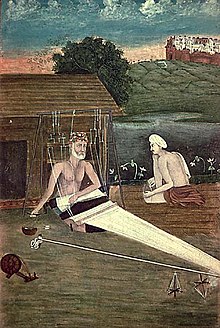
An 1825 CE painting depicting Kabir weaving(Wikipedia)
Rabbi Eliezar (around 100 AD)
"If all the seas were of ink,
And all ponds planted with reeds,
If the sky and the earth were parchments
And if all human beings practised the art of writing-
They would not exhaust the Torah I have learned,
Just as the Torah itself would not be diminished any more
Than is the sea by the water removed
By a paint brush dipped in it." [1]
Meir Ben Isaac...
Giving until it hurts - excerpts from William Barclay and Mother Teresa
May 26, 2019
No comments
William Barclay, Gospel of Mark (1956)
THE GREATEST GIFT (Mark 12:41-44)
12:41-44 When Jesus had sat down opposite the treasury, he was watching how the crowd threw their money into the treasury, and many rich people threw in large sums. A poor widow woman came and threw in two mites which make up half a farthing. He called his disciples and said to them, "This is the truth I tell you--this poor widow woman has thrown in more than an the people who threw money into the treasury, for all of them threw their contributions in out of their abundance,...
The Image of the Beast that Will Come to Life (Revelation 13)
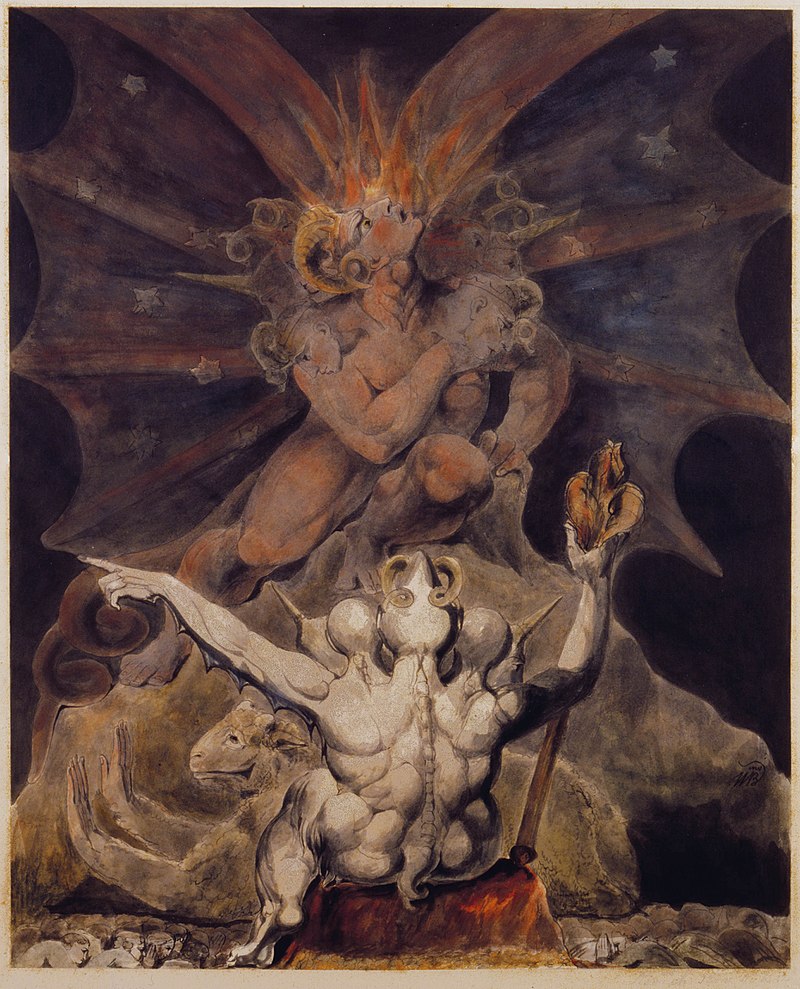
And he had power to give life unto the image of the beast, that the image of the beast should both speak, and cause that as many as would not worship the image of the beast should be killed. (Rev 13:15)
One advantage of prophecy is that it can be verified in history. While the Genesis account of creation is disputed by many in the scientific community (with some theologians attempting to demythologize it), prophecy resists such attempts. Thus,...
The Divine Basis of the Great Commandment
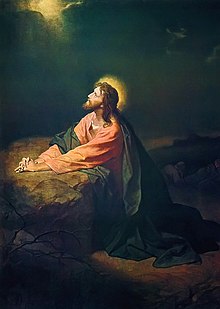
One of them, an expert in the law, tested him with this question: “Teacher, which is the greatest commandment in the Law?” Jesus replied: “‘Love the Lord your God with all your heart and with all your soul and with all your mind.’ This is the first and greatest commandment. And the second is like it: ‘Love your neighbor as yourself.’ All the Law and the Prophets hang on these two commandments.”
The essential Christian ethic is love. The commands...
Ruth's Choice

But Ruth said: "Entreat me not to leave you, Or to turn back from following after you; For wherever you go, I will go; And wherever you lodge, I will lodge; Your people shall be my people, And your God, my God.Where you die, I will die, And there will I be buried. The LORD do so to me, and more also, If anything but death parts you and me." (Ruth 1:16-17)
WHAT HER CHOICE WAS NOT
1. Her choice was not utilitarian. (Ruth 1:11-13. Noami makes it...
The Danites and their Inheritance
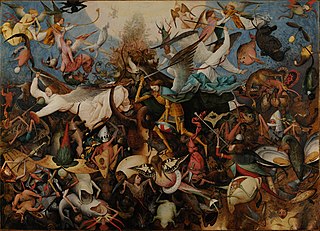
Revelation 7 curiously omits the name of Dan from the list of the tribes of the 144,000 witnesses. One wonders why this is so. Many hold that Dan was probably omitted because he represented full-fledged idolatry in Israel (Judges 18:30). Judges 17 and 18 tell the story of how the priesthood is commercialized and treated in a pagan utilitarian way by a family of Ephraim and a clan of Dan. Revelation 7 does not also mention Ephraim, though it mentions...
Round-about Ethics for Benjamin

Judges 21 recounts the story of how the children of Israel provided wives for the surviving Benjamite males.
An important episode is the gathering of the entire assembly before the Lord at Mizpeh for worship, prayer, and communion.
Since, by an act of vengeance, the whole tribe of Benjamin was destroyed except a few remaining, the Israelites felt it morally obligatory to ensure that the Benjamite tribe survived through posterity. However, they...
Plato’s Butterfly or Man (quote) - Theaetetus
March 13, 2019
No comments
SOCRATES: Let us not leave the argument unfinished, then; for there still remains to be considered an objection which may be raised about dreams and diseases, in particular about madness, and the various illusions of hearing and sight, or of other senses. For you know that in all these cases the esse-percipi theory appears to be unmistakably refuted, since in dreams and illusions we certainly have false perceptions; and far from saying that everything is which appears, we should rather say that nothing is which appears.
THEAETETUS: Very true,...
Freedom from Addiction

Do not be drunk with wine, in which is dissipation; but be filled with the Spirit. (Eph 5:18)
What is Addiction?
“Loss of control over drug use or the compulsive seeking and taking of drug despite adverse consequences.”
“An inability to stop doing or using something, especially something harmful”
Types of Addiction
Substance Addiction (drugs, tobacco, alcohol, medicines, etc)
Behavioral Addiction (gambling, food and eating, shopping, surfing...
Udayana’s Arguments for the Existence of God (Nyaya Kusumanjali. 5)
The Nyaya Sutras was composed by Aksapada Gautama, probably in the 6th c. BC. Nyaya Sutra 1.6.32 states the parts (avyava) of a deduction (nigmana) in the aphorism:
PratijnaHetUdaharanOpanayNigmanAanyavyavaha
which unfolds as:
1. Pratijna - Claim or proposition (conjecture) that needs to be established (1.6.33)
2. Hetu - Reason (1.6.34)
3. Udaharana (Drstanta)- Empirical support (negative or positive case examples) (1.6.35,36)
4. Upanaya - Application (1.6.37)
5. Nigmana - Conclusion or deduction (restatement of claim) (1.6.38)
Example:
1. Pratijna...










